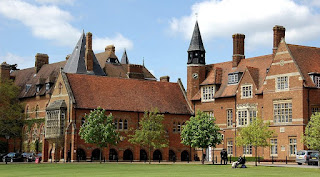Championing Creativity: Art, Music, and Expression in Academic Schools
Education is often seen as a pathway to intellectual growth and professional success, and rightly so. But there's another dimension to learning that often goes hand in hand with academic excellence – creativity.
In the top academic schools in NZ, a holistic approach to education takes centre stage, where the arts, music, and various forms of expression play a crucial role.
Let's dive into how these schools champion creativity and why it's a game-changer for students.
Embracing the Arts: A Canvas of Opportunities
Gone are the days when arts were seen as extracurricular activities. In the academic schools, art is woven into the fabric of education. From visual arts to theatre, students are encouraged to explore their creative sides. Why? Because art isn't just about painting on a canvas; it's about critical thinking, problem-solving, and expressing oneself. These schools recognise that cultivating creativity nurtures well-rounded individuals who are ready to tackle challenges with a fresh perspective.
Harmonising with Music: The Soundtrack of Learning
Music is more than just a series of notes; it's a language of emotions and a powerful tool for cognitive development. The academic schools understand this, integrating music education into their curriculum. Whether it's learning to play instruments, understanding music theory, or participating in choir performances, students get to experience the transformative power of music. Research shows that music enhances memory, improves concentration, and fosters teamwork – skills that extend far beyond the notes.
Expression Beyond Words: Drama and Debating Clubs
In a world where effective communication is a prized skill, drama and debating clubs take the stage. These clubs offer students platforms to express themselves, build confidence, and refine their persuasive abilities. In the top academic schools in NZ, drama isn't just about putting on a show; it's about understanding different perspectives, developing empathy, and mastering the art of communication. Debating, on the other hand, hones critical thinking and analytical skills, preparing students to articulate their ideas effectively.
The Ripple Effect: Creativity's Impact on Academic Success
You might wonder, how does all this creativity tie into academic success? Well, research shows that embracing creative outlets positively impacts academic performance. Engaging in arts, music, and expression stimulates brain activity, enhances problem-solving skills, and even leads to higher standardised test scores. So, in the academic schools, when students participate in creative endeavours, they're not just having fun – they're building a foundation for overall achievement.
Fostering Individuality: The Beauty of Creative Expression
One of the most beautiful aspects of creativity is that it celebrates individuality. In the diverse community of the top academic schools , creative pursuits allow students to showcase their unique talents and perspectives. Whether through art exhibitions, musical performances, or dramatic productions, students learn that their voice matters and that their unique contributions enrich the collective tapestry of their school.
A Lifelong Love for the Arts
The impact of creative experiences in academic schools extends far beyond the classroom. It plants seeds for a lifelong love and appreciation of the arts. Whether students pursue careers in the creative industries or not, the creative skills they develop – such as adaptability, innovation, and open-mindedness – serve as valuable assets in any field they choose.
In conclusion, the top academic schools in NZ recognise that creativity isn't just an add-on; it's an essential ingredient in the recipe for holistic education.
Source : Championing Creativity: Art, Music, and Expression in Academic Schools


Comments
Post a Comment